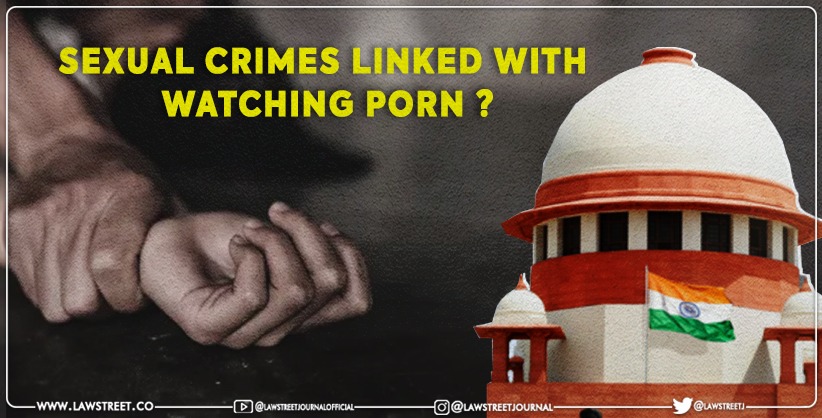NEW DELHI: "You can't set the house on fire to roast a pig," the Supreme Court on Monday quoted a US Supreme Court judgement on internet ban in 1990s and declined to entertain a plea for undertaking a study to find out any possible link of crimes like rape with watching porn materials.
A bench of Chief Justice U U Lalit and Justice S Ravindra Bhat told BJP leader and advocate Nalin S Kohli that the court can't issue orders, which may become cumbersome and unimplementable for the authorities.
The plea sought a direction to the Bureau of Police Research and Development (BPRD) to study the link between free access to internet pornography and spurt in child sexual abuse and rape cases.
The bench, however, said, "We have to be careful since you are advocating some kind of surveillance. You have to tell us what is the viewership, if it is so offensive then government has enough arsenal to handle this."
"If this tiger gets loose how do we handle it," the bench asked him further.
Kohli, for his part, said, "This tiger is devouring everyone from two-year-old to 87-year-old women."
The court questioned the petitioner if he was trying to establish a direct link between such cases and porn. It also asked the petitioner if he wanted a separate data base in rape cases.
The bench further said the NCRB only maintained record of cases and if a mandate is issued also to record the nature of crimes, it would become cumbersome and unimplementable for the authorities.
"Whether someone is a serial rapist or addicted to this (watching porn), there cannot be empirical evidence. All of them are accused. How many convictions can you show," the bench said.
The petitioner-in-person contended there was a direct link between watching violent pornography and such acts.
"The record is bare minimum. Now, you want directions to look at acts preceding the crime to see what was the reason and accordingly bracket a crime. This would not be possible," the bench further said.
Kohli also submitted his plea could be tagged with another pending matter filed by NGO 'Prajwala'.
The bench, however, pointed out, "Prajwala was a case where issue was if a video of a girl who was raped or gang raped was uploaded, the reputation of the girl takes a beating since pulling down of such videos takes 72 hours."
The court finally allowed Kohli to withdraw his plea and granted him liberty to file an intervention application in Prajwala case.
The petitioner sought a direction to authorities of all the state police organisations, to collect data in a time bound manner on the specific issue of investigations to confirm a link between viewing of pornographic material and acts of rape and also consider formulating a SOP by its police to include the aspect of viewing of pornographic material while investigating cases of rape and sexual assault.
He claimed the news articles as well as police investigations on rape and murder are increasingly pointing towards the existence of a link between watching pornographic content and sexually explicit content particularly of a violent and non-consensual nature that appear to have acted as a stimulus for committing rape and sexual assault, and even murder, in an attempt to eliminate evidence.
"Unfortunately, our newspapers on a daily basis are filled with extremely disturbing and distressing news of rape and sexual abuse against all age groups. The most appalling fact of such news is that many of the victims of such crimes are children including infants," he said.
"This becomes a matter of even greater concern in an environment where sex education for appropriate sexual behaviour is not part of the education system and treated as socially inappropriate and even a taboo. Studies have highlighted the link between pornographic viewing and sexual crimes against women and children," he claimed.
The petitioner also gruesome murder of a six-year-old girl, wherein it was revealed that the four perpetrators of the crime, including two minor boys between eight and 11 years of age, were porn addicts, forcing the Assam Police to issue guidelines to be followed for collecting digital evidence while investigating offences related to rape, molestation and other sexual offences.









